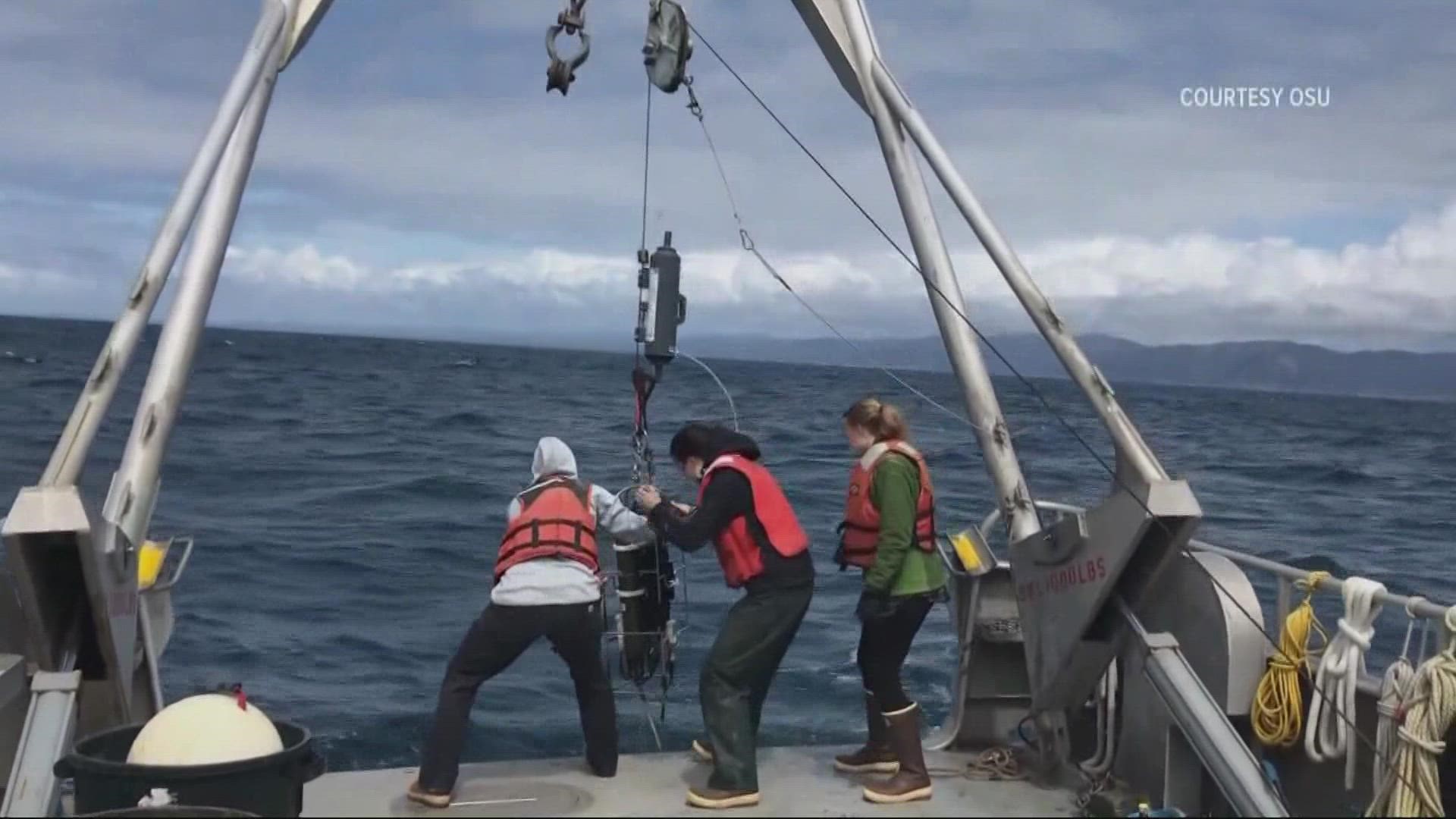CANNON BEACH, Ore. — A researcher studying the changes happening in the ocean off the Oregon coast called what he has seen unprecedented.
There has been mass die-off of species critical to our ocean and our fisheries.
Now an underwater mission is underway to find out what is happening.
It all began back in 2013 with a record-breaking marine heatwave. It became known as the "warm blob". It was unusually warm water off Oregon's coast that changed what kind of fish swam in our coastal waters.
Then came the dead zones. These were large areas of the ocean floor where sea-life suffocated due to lack of oxygen.
The result of these events was a massive decline of some pretty important species.
"It's an unusual cascade of ecological events that have come together all at once. It's really unprecedented along the Oregon Coast in recorded history," Steve Rumrill.
Rumrill is the shellfish program leader at the Oregon Department of Fish and Wildlife. He's been studying this disturbing trend.
"They have virtually disappeared," Rumrill said in reference to sunflower sea stars. They and other important marine species like abalone have been declining dramatically.
"The sea stars in particular we're concerned about are the multi-armed sunflower sea stars, 90% of the population has disappeared."
Also declining has been bull kelp which is essential for the survival of a number of ocean species. At the same time, the purple sea urchin population has been rising rapidly.
"We had a very unusual increase in the number of purple sea urchins," said Rumrill. "Purple sea urchins are grazers so they graze seaweed bull kelp and that has contributed to the decline of the kelp."
To find out what is going on, the Oregon Department of Fish and Wildlife Marine Resources Program was recently awarded a $250,000 grant to get out into those waters.
"It may be indicative of changes in our near shore ocean climate which could be couple with climate change," Rumrill said.
The grant money will fund scuba divers to conduct underwater surveys as well as unmanned submarines to monitor the changes in our near-coast waters.
While there are still a lot of unknowns, one thing is for certain. Our ocean is changing. Researchers will be exploring it more and more to find out why.

